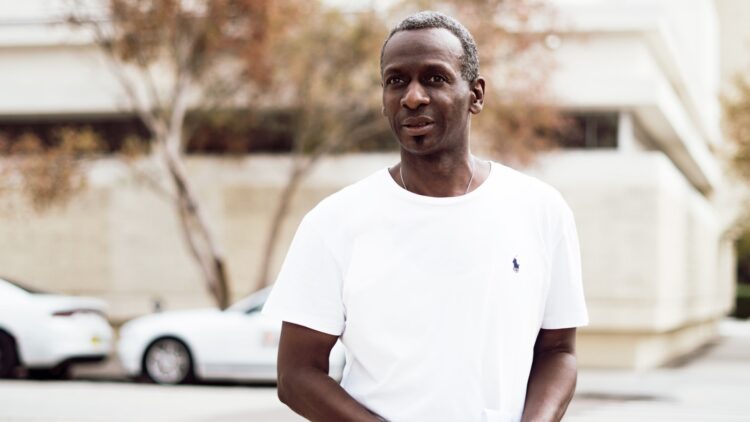
As men get older, their priorities shift. The things they once tolerated or tried to fix now feel like wasted time. They’ve had enough experience to know what works—and what doesn’t. They want peace, not drama. Clarity, not confusion. And they’re no longer afraid to walk away from anything that feels like hard work for the wrong reasons. Here’s what they won’t entertain anymore.
Mind games.

If you like them, say it. If not, they’re not chasing for clues. They’ve played the guessing game before—waiting, wondering, and rereading messages like puzzles. Now, they want clear words and steady effort. If someone’s more into being mysterious than being real, they’re not interested. Older men choose peace over puzzles. They won’t sit around trying to read between lines that shouldn’t be there in the first place.
Overreacting to small things.

They’ve lived through enough chaos to know what calm feels like—and that’s what they want now. A small comment shouldn’t lead to a meltdown. If every talk feels like walking into a storm, they step out. They’re not interested in someone who turns every bump into a crisis. They want a partner who knows how to breathe, not blow up. When calm becomes rare, it also becomes valuable.
Jealousy over nothing.

They believe trust should be the default, not a reward. If someone always asks who they were with or why they smiled, it gets exhausting fast. They don’t want to explain every harmless moment. Feeling like they’re on trial for just living their life? That’s a no. If trust isn’t there from the start, they’d rather not stay and try to build it from scratch.
Trying to change who they are.

They’ve worked hard to feel good in their own skin. They’re not trying to impress anyone by changing their habits, their hobbies, or their personality. They’ll grow with someone—but not for someone. If the relationship feels like a makeover plan, they step back. What they want is a partner who sees them clearly and doesn’t try to edit the picture.
Always needing attention.

Needing love isn’t the issue. Needing constant proof of it? That’s where things get hard. They don’t want to be the only source of confidence for someone else. If the day-to-day feels like they’re trying to hold someone up all the time, they grow tired. They want steady connection, not a spotlight. According to them, attention should be shared, not demanded.
Avoiding real conversations.

When someone shuts down every time things get serious, it becomes a wall. Saying “I’m fine” while staying distant doesn’t solve anything. Older men don’t expect perfect communication—but they do expect honesty. If you can’t talk through problems, they stop trying. They understand that silence is important but sometimes you just need to talk to understand each other better.
The constant need for drama.

They’ve had relationships where every small issue turned into a fight. Now, they avoid that. If someone picks arguments often or needs conflict to feel close, they lose interest. They’re not afraid of showing their emotions; they don’t want to argue over things that don’t matter. They look for calm people who talk things through. If spending time together feels tense more than good, they know it won’t work.
Flirting with others to provoke them.

They’ve seen the trick before—someone flirts, waits for a reaction, and calls it harmless. It’s not harmless to them. It’s annoying. They believe if someone cares, they don’t test it by pushing limits. They’d rather have clear affection than mixed signals. Being provoked for attention doesn’t make them feel wanted—it makes them feel used.
Making them guess what’s wrong.

They’ve been through the guessing games. If someone is upset but says, “It’s nothing,” while acting distant, they won’t chase it anymore. They appreciate open talks, even if they’re uncomfortable. They don’t expect mind reading, and they won’t try to do it either. If the vibe changes, they want to know why—not sit in silence until it passes.
Bringing up the past to win.

Mistakes have been made. They’ve owned them. But if every disagreement leads back to something from years ago, it drains them. They want to solve what’s happening now—not be reminded of what they already fixed. Growth means moving forward. If the past keeps getting used as a weapon, they know it’s time to put some space in the present.
Mocking what matters to them.

It’s not about agreeing on everything. But if they care about something—family, faith, music, even a routine—and their partner constantly mocks it, it gets old fast. Older men don’t need someone to love what they love, but they expect respect. If every interest becomes a joke or gets brushed off, it feels personal. They’d rather be with someone curious than someone critical. Dismissing what matters to them? That’s how distance starts.
Not pulling your weight.

They notice when they’re the only ones putting in effort. If they’re always checking in, planning time together, or solving problems alone, it starts to feel one-sided. They’re not asking for a lot—just someone who tries, too. A relationship should be shared. When it feels like a job they’re doing by themselves, they don’t complain. They just stop. Because if it matters, the effort should come from both sides.
Acting differently around other people.

If someone treats them one way in private and switches up when friends are around, it throws them off. Being joked about, ignored, or turned into the punchline just to look cool? No thanks. They’ve got no patience for people who need an audience to act right. If it doesn’t feel the same behind closed doors, they’re not sticking around to figure out which version is real.
Using silence as punishment.

Needing time to think is one thing. Going completely silent to make a point? That’s something else. They don’t respond to games where attention is withheld, like punishment. If someone shuts down instead of speaking up, it creates distance fast. They’ve learned that connection needs communication—even when things are tough. If silence is used to control or punish, they stop trying.
Making everything a competition.

They’re not keeping score. Who was right, who paid last, who made the bigger sacrifice—it doesn’t matter to them. They’re looking for teamwork, not rivalry. It gets tiring if someone always turns conversations into battles or needs to win every time. They’re at a stage where peace matters more than proving a point.

